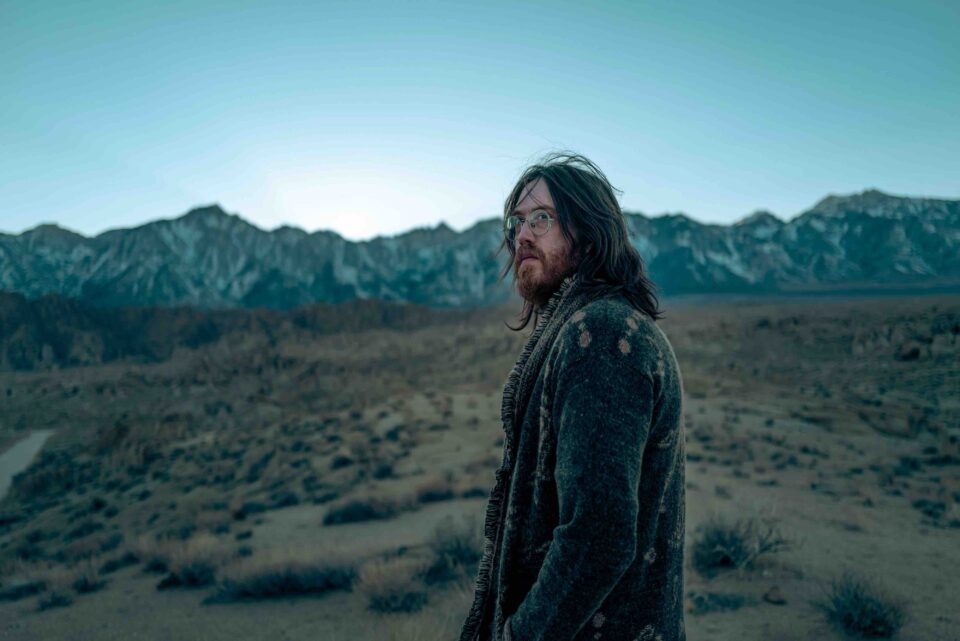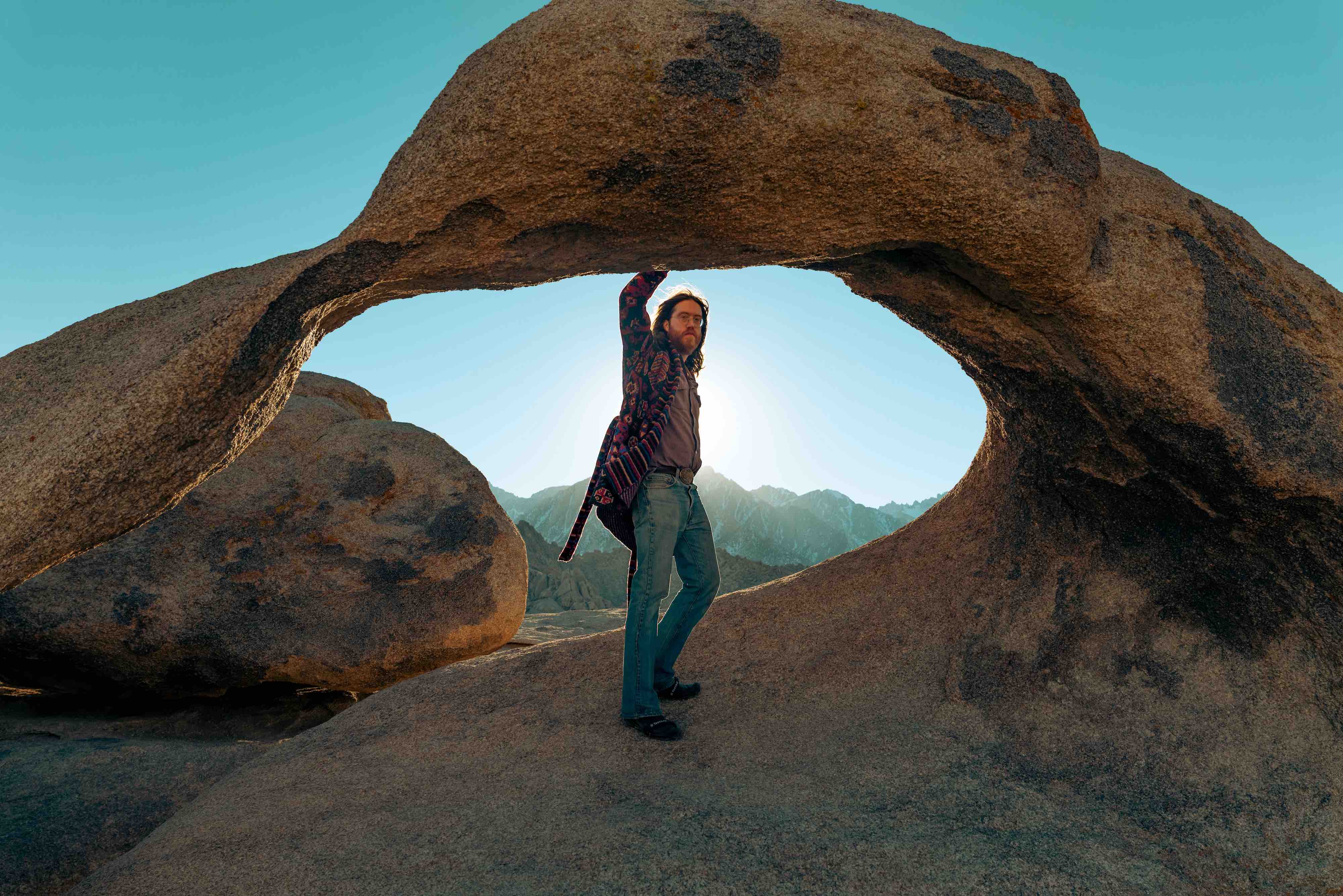Will Sheff has been releasing music under the name Okkervil River for over 20 years. So you’d think maybe his debut record under his own name, Nothing Special, would be some grand artistic statement, some sculpted bit of indulgence he’s been dying to unveil, a pulling back of the satin curtain to reveal his masterpiece. As you may have already found, this isn’t exactly the case. Nothing Special is, as its name suggests, not an outlier—but that’s not a critique. Sheff has been releasing good-to-great albums for some time, and while this record hews toward the latter, it isn’t some reinvention of the wheel. In fact, Sheff’s goal was to not worry too much about perfection and instead take things as they come, removing a layer of effort and ambition and allowing something more innate to shine through.
What results is an album that unfurls itself slowly over its 10 tracks, a deliberate and thoughtful examination of Sheff’s past, present, and future. Contentment seems to be on his mind throughout. Even when addressing such weighty topics as death, Sheff seems set on acceptance, even if that road takes plenty of hard work. A song like “In the Thick of It” perfectly encapsulates this dance: “Guess we’re back here again, pinned by unbearable pain / But my soul knows it’s surfing a variable wave,” Sheff sings in a languid sigh before Cassandra Jenkins joins for a spell-binding duet. It’s a single moment among many that show how essential Nothing Special is to Sheff’s ongoing creative output.
We recently caught up over the phone to talk about the new record.
You talk about how a big reason for moving on from the Okkervil River moniker is to remove expectations. Are there any other artists that may have influenced that choice?
There’s this artist someone recommended to me recently named Brian Cutean. He’s got this real hippy, ’90s, home-released looking thing to his music—it’s very obvious he did the album covers himself, they’re kind of goofy. It seems like he’s the kind of person who’s unaware of indie rock and the way indie rockers present themselves and the frame that you put yourself in from an indie rock standpoint. He was just this very earnest, folky guy.
I think with age I’ve gotten less judgemental about presentation. There have been so many times in my life—and I think this is really common—where people just dismiss some work because it’s not in the correct packaging. Indie rock, hip-hop, jazz—it’s all packaged in a certain way, and anything that doesn’t have the right look, sometimes you think, “Well, this must not be for me.”
“You come up with a fanciful band name and it feels like it’s been rebranded as an exciting rock band even though it’s still just a person writing songs. I love the art of presentation, but it can also be really limiting, I think, especially as a listener.”
There’s something very mysterious about the prejudices listeners bring to music—either the unquestionable allegiance or unreasonable hatred that people bring to things, often based on some really simple signifiers like what the album art looks like. Even Okkervil River, and calling myself a band name—that was something I think a lot of people started to do in the ’90s so that you didn’t feel like you were just a boring singer-songwriter with your first and last name. You come up with a fanciful band name and it feels like it’s been rebranded as an exciting rock band even though it’s still just a person writing songs. I love the art of presentation and sculpting how something comes across, but it can also be really limiting, I think, especially as a listener.
It seems like with artists who are incredibly dependable, that leads them to get lost in some kind of narrative arc that people expect. There might not be a comeback record if you’re just good for 10 records in a row.
I think people are excited about novelty, about something new that a young person or someone they haven’t heard of is doing. I notice it with some friends or artists I’ve consistently liked for a really long time, where I’ll be listening to some work they did and I’ll think that if a 21-year-old put this same record out, it would be completely reframed. There’s this funny Borges story called Pierre Menard, Author of the Quixote, where he’s going to write Don Quixote by himself and he puts it out and the fictional narrator is comparing two passages that are exactly the same but calling the Cervantes version stodgy and old-fashioned and praising the new one for being fresh and original. It sort of speaks to that.

I wonder if that idea might have been part of the decision to change from Okkervil River to Will Sheff?
I think that’s part of it. “Okkervil River” is the dumb band name I came up with when I was 22 years old. It’s also the buzzy band we rode to our ascent in the mid-2000s. It’s also the deconstruction and reframing effort I tried to do when I was starting to chafe against it. Similarly, “Okkervil River” means a lot of things to a lot of people who aren’t me. You could be really focused on those gawky early records, you could be really into Black Sheep Boy, you could be really into the Roky [Erickson] stuff. I often feel a pressure, rightly or wrongly, to answer for that, and it gets translated as a request by the audience, whether intentionally or not, to regress to other versions of myself for people’s entertainment.
“I don’t want to be the same guy doing the same thing over and over again, I want to grow. When I try to go back to those places it feels like trying to go back to hang out with your friends from high school. It feels fundamentally regressive in a way that something inside me says no to.”
Maybe the reason I say that is because I did take all those records really seriously when I was making them. They were the most important thing in the world to me, each and every one of them. As a result, I don’t want to be the same guy doing the same thing over and over again, I want to grow. When I try to go back to those places it feels like trying to go back to hang out with your friends from high school in your clothes from high school and go to the mall. It feels fundamentally regressive in a way that something inside me says no to.
Nothing Special gets to be its own thing without fitting into some larger picture.
One of the things I’m proudest about on Nothing Special is that it feels like it’s neither a childish desire to piss people off or alienate people or that sort of, “Will you like it if I do this?” Every time I talk about this album in any sort of depth, I end up saying very general things. Which I guess is like how when you talk about the meaning of life, you end up talking about things like love. It shows how bad language is at nailing down some of the most important stuff. But in that spirit, I was literally just trying to make the most beautiful music I could make.
These songs seem very unhurried and really give the whole record a much different feel and pace. Was that something you set out to do?
That was aesthetically the most important thing to me: letting the songs unfold. That wasn’t because of some specific idea I had, but an inner directive. I like when music breathes. I like a loud, fast, frenetic punk song, too, but that’s not the emotional space I’m in right now. I like creating a world you can inhabit for some period of time. I know that’s exactly the kind of music, movies, and books that are hard to release these days because there’s a sense that you’re supposed to grab people’s attention. For that reason, I think it’s important to create stuff that doesn’t try to grab people’s attention.
“One of the things I’m proudest about on Nothing Special is that it feels like it’s neither a childish desire to piss people off or alienate people or that sort of, ‘Will you like it if I do this?’”
How do you think putting together the A Dream in the Dark live album series changed your relationship to your past work? Was that a way to exorcize Okkervil River as a project in a way?
It wasn’t what I consciously set out to do, but that’s what it ended up being. It was like going through your old things and throwing away things you don’t remember saving in the first place, or dusting the things off you want to keep and filing them away. When you do a record and then you play the songs live a million times, you almost forget what the album version is like. Then you come back to the album version and can’t believe you made certain decisions. You get this feeling that you’re playing the songs so differently and much better, and that you really figured something out about them.
So I wanted a parallel presentation of Okkervil River that wasn’t focused on the record, but how we played those songs live and the different energy we had. If you listen to it through in order you’ll hear a progression from this drunken, barnstorming, ramshackle thing to this professional, ambitious, honed thing, to this very exploratory thing. In a way, none of those sides were fully presented on the albums. This actually honors more of what my life was like during Okkervil River than any of the [studio] records.
You’ve talked before about how Away was the first record where you felt you weren’t relying quite so heavily on outside affirmation. Do you feel like you’ve kept that mindset going since that point?
Away will always be really special to me. The spirit of what I was trying to do on Away was really, truly what I needed to do at that moment. It does have to do with affirmation and what people think about you. Sometimes I feel very ungrateful because people love my songs, and they mean a lot to them, and somehow that’s a problem for me? That’s really fucked up when I look at it from the outside. I’m quibbling with people liking shit that I do? I don’t even understand why I am that way, but I think it comes from a really sincere place.
What I’m really proud of with Nothing Special is that it doesn’t have as much effort. I care a lot about it, but you can care too much. It’s like if you have a kid and you accept they’ll find their own way in life versus choosing that they’ll be a doctor and mapping out their life. That’s still coming from love, but you can’t really control anything that much. That’s the attitude I try to take with my music right now. There’s so much I cannot control, and trying really hard is of limited help. If I can write the best stuff I can, and ask the people who I think are the best people to play it, and accept if something isn’t working, I feel that really makes a difference. FL









